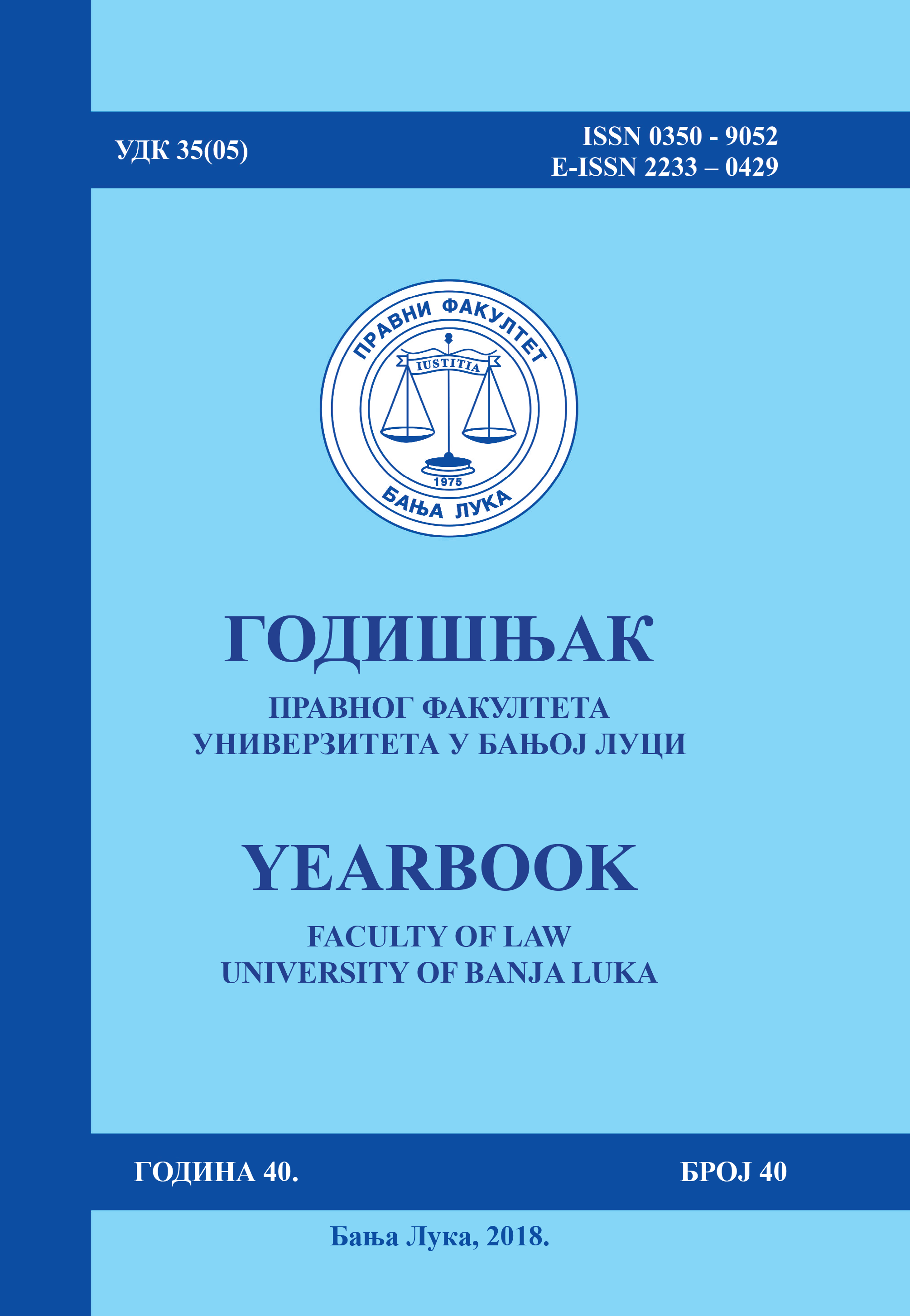ENTITIES OF LOCAL SELF-GOVERNMENT AS POSSIBLE HOLDERS OF HUMAN RIGHTS
Сажетак
In this article, the author, using the scientific method of comparison
and analysis, presents the case law regarding position of municipalities and other
self-governing local communities as entities of public law as potential human
rights holders. These self-governing local communities generally share the
principled position of entities of public law, to which the legal order recognizes
(merely) the status of the addressee of human rights, not the holder. From the
constitutional case law of some European countries (Germany, Liechtenstein,
Switzerland), especially Slovenia, and the United States of America, as a
representative of the Anglo-Saxon legal system, it follows that local communities
are recognized as holders of human rights either by enforcing the so-called
procedural human rights (as this does not require a link with exercising dignity
of an individual) and property rights or the right to filing the so-called municipal
constitutional complaints when it comes to enforcing protection of local selfgovernment
against unconstitutional interference with the constitutional right
to local self-government. The author believes that the development of titularity
of municipalities in relation to human rights, i.e. municipalities as holders of
human rights, is often subject to legal policy.



